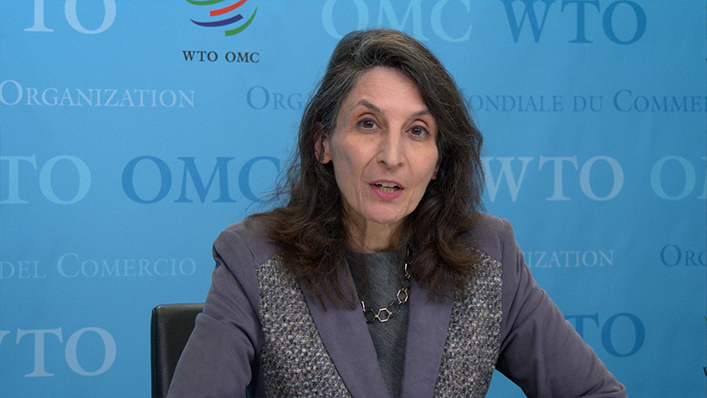
DDG Ellard referred to the WTO’s preliminary research demonstrating that a decoupling of the global economy into two blocs would slash long-term global real GDP levels by about 5 per cent. She noted that the high cost of fragmentation shows that we need more strategic multilateralism and less unilateralism.
DDG Ellard further observed that trade is part and parcel of the solutions to the challenges of global commons, which can be addressed only on a multilateral basis. To tackle issues such as ocean sustainability, climate change, food insecurity and global pandemics, participation of as many countries as possible — big and small, developed and developing — is needed. The WTO is the forum to bring diverse interests together because of its focus on the welfare of people and on sustainability, she noted.
DDG Ellard added that addressing issues of global commons requires reforming and strengthening the WTO. She said that at the 12th Ministerial Conference WTO members demonstrated they could achieve agreements on issues of global commons despite deepening geopolitical divisions and even war. She pointed, in particular, to the new WTO Agreement on Fisheries Subsidies, which will deliver for the ocean and those who depend on it for their livelihoods and as a protein source.
DDG Ellard referred to economic growth as a means to improve the lives of so many, particularly the most vulnerable. “We can’t be so quick to dismiss the economic cost of sudden and radical change with a move to fragmentation,” she emphasized, “particularly when it comes to improving societal wellbeing.” She concluded by pointing to the WTO as “an agent for change” that is worthy of the effort to reform and nurture.
Share
Reach us to explore global export and import deals